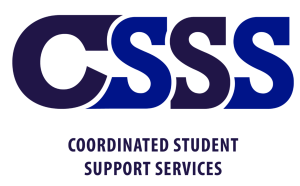Administration with Sound Management and Well-Developed Systems
Quality 21st CCLC programs are led by prepared individuals who work to ensure the implementation of high-quality programs. This includes the health and safety of students, hiring and training staff, and a program design that supports student learning. Program leaders develop partnerships with community members that enhance learning opportunities and ensure program sustainability, as well as provide ongoing opportunities for meaningful family engagement. Program leaders are also responsible for managing program budgets, and oversight of a continuous improvement evaluation process that includes ongoing data collection, reporting and analysis.
Afterschool Alliance
This website provides research, publications and resources related to afterschool programs.
American Institutes for Research
This website offers research, publications and resources related to afterschool programs.
Afterschool Nutritional Toolkit
This guide was assembled under a grant to Hunger Free Heartland through the National League of Cities and the Food Research and Action Center
Afterschool providers can play a critical role in eradicating childhood hunger. This toolkit was designed to help such programs to provide nutritious snacks and meals. In particular, it aims to make federal funding more accessible, and to promote best practices and sustainable program designs. This toolkit and other materials from the Afterschool Nutrition Education Summit have been posted on My21stCCLC under Content>Project Director Resources.
Breaking the Mold, Combining Community Schools with Expanded Learning Time to Help Educationally Disadvantaged Students
This Center for American Progress report examines three schools that have implemented the combined community school model and an expanded school calendar.
Corporation for National & Community Service
This website provides resources, effective practices, lending library and links related to out of school time.
Leading After-School Learning Communities: What Principals Should Know and Be Able To Do (Executive Summary)
National Association of Elementary School Principal By collaborating with afterschool programs and accepting them as vital partners in education, principals can strengthen their schools and move closer to the overriding, common goal of maximizing learning for every child.
Nebraska School-Age and Youth Development Core Competencies
These voluntary Core Competencies represent the combined efforts of educators and youth development professionals from across Nebraska to define the skills, qualities, and abilities that youth development professionals need to know and be able to do to provide quality out-of-school time services for youth and their families.
Practices to Foster in Out-of-School Time Programs
This Child Trends publication identifies ten practices that can foster positive outcomes for participants in out of school time programs.
Shining a Light on Supervision: Lessons from the Beacons
This issue from The Forum For Youth Investment addresses supervision: guidance, feedback and knowledge provided to staff, particularly those working at the point of service, in order to achieve better outcomes for youth.
The Rural Solution. How Rural Schools Can Invigorate Rural Education
This Center for American Progress publication combines data from the literature and other public sources, interviews, site visits, and the organizational experience of The Rural School and Community Trust in an examination of community schools from a rural perspective.





